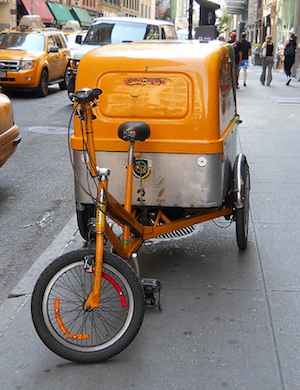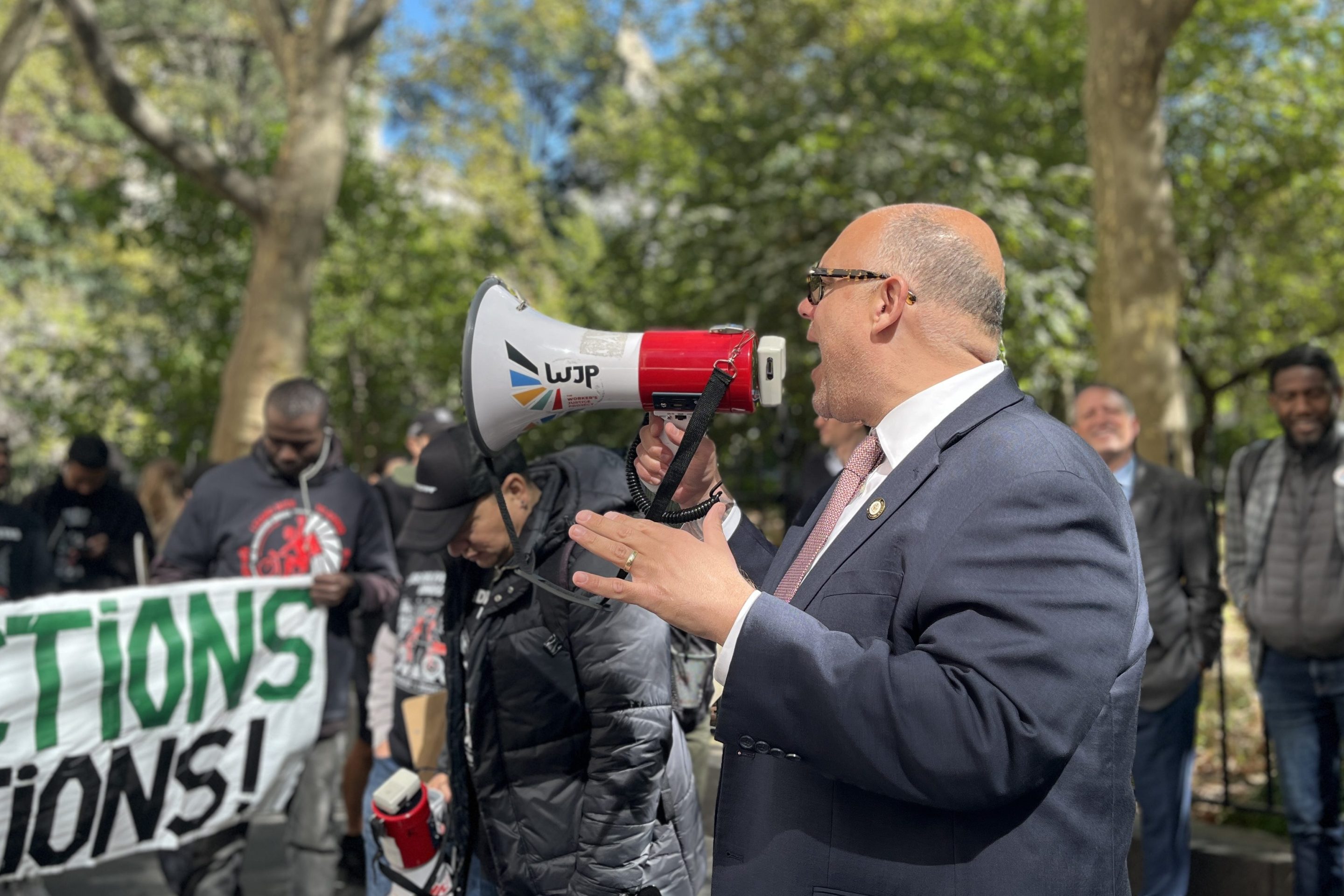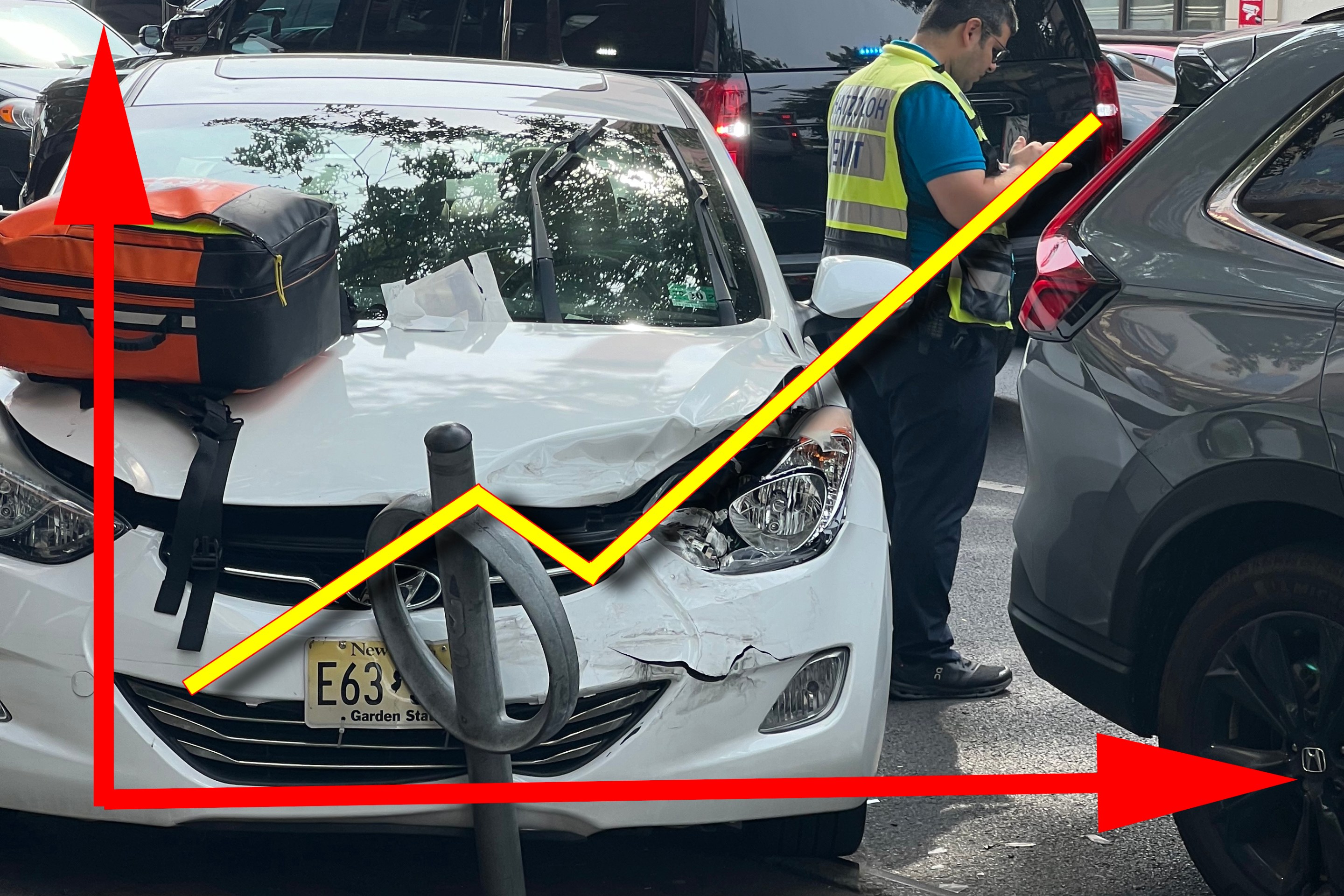In a city as dense as New York, with gridlocked streets and need-it-now demands, bicycle delivery serves a vital role. The city keeps its stomach full with pedal-powered food delivery, while couriers, whose numbers have dwindled as communications technology has advanced, still ply the streets of Midtown.

Somewhere in the mix is the humble cargo bike, which fills a niche -- bigger than a messenger bag, smaller than a box truck -- with enormous potential. But despite its steady presence on city streets, cargo bike delivery has never really taken off in New York, instead serving smaller-scale needs, like hauling dry cleaning to customers in the West Village or distributing groceries from local stores directly to people's apartments in Williamsburg's South Side.
Is it possible for human-powered cargo delivery to replace small truck and van trips on NYC streets? Even as small operators find it difficult to stay afloat, one online startup, Zipments, is looking to boost the city's cargo bike business, and its CEO envisions cargo bikes as the final link in many distribution chains serving Manhattan and nearby Brooklyn and Queens.
Right now, operators like Shelley Mossey's Small Haul NYC, which hauls items for independently-owned businesses, are typical of the cargo bike economy in NYC. For three years, Mossey has served hardware stores, wine shops, and juice-makers not far from his Battery Park City home.
"He is our main go-to delivery person," said Christy Frank, owner of Frankly Wines in Tribeca, which hires Mossey to deliver everything from single bottles to 10 cases of wine, with 10 to 15 deliveries in a usual week.
Mossey delivers 100 shipments per week for Joulebody, a specialty diet foods company, and has even taken his bike on the ferry to Hoboken to make deliveries for them.
Along with the benefits of cargo bikes, Mossey recognizes their limitations. His clients rely on UPS and FedEx for shipments farther afield than Manhattan and its environs, and some extra-large shipments just can't be done by bike. "If you have a big job, it's insane to do it with bicycles," Mossey said. "Economically, it doesn't make sense."
Even when it does make sense, shipping by bike can be a tough sell for some business owners. Mossey used to work at a courier company that had trucks as well as bicycles, and workers would occasionally substitute bikes for some truck jobs. One day, a customer called to complain. "Even though the bike could do the job in half the time, they wouldn't give the job to the cargo cycle," he said. "To switch their mindset from a truck to a bike is very difficult. They just don't get it because they've been using trucks."
Another limitation is the security bollards the city has installed at entrances to the Manhattan and Williamsburg Bridges. George Bliss, who runs Hudson Urban Bicycles in the West Village, can't get his cargo trike through the narrow entrances. "The city has created a de facto ban on large cargo bicycles," he said.
Even if a company's routes don't involve crossing those bridges, it can be difficult to keep a busy operation in the black.
Jonathan Rabinowitz opened Aqueduct Logistics in September 2011 and had to shutter the business in December 2012. With a staff of three, Rabinowitz found himself drowning in insurance and workers' compensation costs. He found it difficult to insure his bicycles, and while delivery by van or truck is automatically covered in workers' compensation costs because of the large risk pool, bicycle delivery is an additional fee.
Aqueduct differed from small-scale cargo operations, which are often just one person going into business for themselves and don't require workers' compensation. And it was also a different model than most courier firms, which hire their messengers or cargo bike riders as independent contractors, absolving the company of this cost.
But Rabinowitz wanted to create better conditions for his staff. "I want to have the workers' comp policy to protect my workers," he said. "I wanted to give the employee a steady work shift." To provide steady work, Rabinowitz limited his client list to companies that made regular deliveries.
In addition, the distance between origins and destinations can pose a challenge. Although couriers can stay in the business centers of Manhattan, food and other goods producers -- and their clients -- are scattered throughout the city. Portland, Oregon, has grown a bicycle cargo industry because small-scale producers and consumers are in relatively close proximity to each other, Rabinowitz said, but this model is a tough fit for New York.
If the pool of insured delivery cyclists were larger, the cost of insurance would drop. Until that time, most businesses avoid these costs by hiring couriers as independent contractors. In this environment, Rabinowitz said, "Bicycling is not the difficult part. The difficult part is making the business work given the pressure on prices and the low wages."
Nicole Chaszar runs The Splendid Spoon, a soup-making operation in Greenpoint that used Aqueduct to deliver its products. "I had always thought of biking as a way to deliver. For the city, it makes more sense," she said. Her company has since turned to Zipments, a Manhattan startup, for its cargo bike deliveries.
Zipments offers online tools that automate the dispatch process, matching couriers with same-day delivery requests. It handles both courier work and cargo work. CEO Garrick Pohl moved the company to New York from his native Michigan after deciding to shift focus from deliveries by car to deliveries by bike.
While the company offers standard rates and guaranteed delivery in Manhattan and parts of Brooklyn, it also allows delivery requests outside of that zone, without guarantees about rates and delivery time. The company is handling about 100 deliveries each day in New York; about three quarters are made by bicycle, with an additional 20 percent by cargo bike. The remainder are made on foot.
"We're seeing a lot of businesses with warehouses outside of Manhattan," Pohl said. Some of those shipments will be brought to Manhattan by truck, then distributed by cargo bike. While the company works mostly with independent contractors who own their own rides, it also stores a fleet of its own cargo bikes around the city, so a courier can use one if he receives a large delivery.
"What we really set out by moving to New York," Pohl said, "is to really showcase New York as this flagship city for other urban areas to follow in terms of alternative transportation."
While Zipments has promise -- not to mention financing from the city's Economic Development Corporation and private venture capitalists -- so far, shipping goods by cargo bike remains a niche in the city's logistics system. To truly showcase the possibilities on a large scale would take a commitment from a major client like FreshDirect.
"It's an untapped market," Mossey said.





